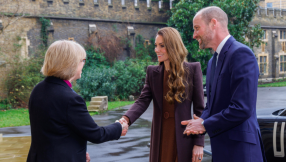
A major new report has been launched into the impact of the pandemic on religious life in the UK.
The report, "British Ritual Innovation under Covid-19", was conducted by Manchester Metropolitan University and the University of Chester, and examined the experience of churches, mosques and other places of worship during the pandemic.
It was based on the experience of 604 religious leaders and adherents.
The study found that the shift to online not only for services but life events like weddings and funerals due to Covid-19 restrictions was a huge challenge for religious communities.
This was not only the case for religious leaders hosting the events, but also for worshippers who found online worship to be less spiritual, meaningful and effective than gathering face to face.
This was especially the experience of larger congregations, which researchers said suggested smaller religious communities were better able to maintain a sense of togetherness and mutual support during the crisis.
Despite these challenges, the study also found a number of positives emerging from the experience of the pandemic, with online attendance appearing to be higher than before the outbreak of Covid-19 and disabled people in particular benefiting from the digital expansion.
Researchers also found that people enjoyed the opportunity to attend different places of worship from their own, and that online gatherings attracted people who could not or did not wish to attend in person.
"While the disembodied nature of online practice could make some rituals feel distant or inauthentic, the ability of worshippers to join communities far from their homes has nevertheless been perceived as a significant positive development that is likely to continue," they said.
"This is especially for people with disabilities, for those who do not have a local congregation that serves their religious needs, or for members of faiths whose numbers in the UK are relatively small."
The report further says that the pandemic has accelerated an existing trend towards digital religious experience and predicts that hybrid will remain, although researchers suggest the experience needs to be improved.
"The relative overall dissatisfaction with online worship suggests a limit to the potential of online-only communities," the report continued.
"Some form of online-offline hybrid seems likely to be the way forward."
Dr Josh Edelman, Reader at Manchester Metropolitan and lead researcher, said: "During this crisis, people have found meaning, stability and community in participating in the rituals of their faith.
"Digital technologies have made that possible, even during social distancing, and that's been a great benefit.
"But the experience of worshipping online is different than the experience of worshipping in person, and while there have been some very exciting developments, the sense of community that comes from face-to-face gathering is hard to beat.
"We hope this project will help religious leaders think through the possibilities and challenges of digital technology, so that when they're used, it's in a helpful, humane way that broadens out and opens up religious life, rather than shutting it down."
Professor Alana Vincent, Professor of Jewish Philosophy, Religion and Imagination at the University of Chester and researcher on the project, said: "The pandemic has accelerated a move towards digitisation which was already highly likely—but it has also made people more aware of what cannot be digitised.
"The challenge for religious communities going forward will be to maintain the good things, such as increased accessibility, while also providing the sense of community and connection that people crave."
The study is available to read in full online.













